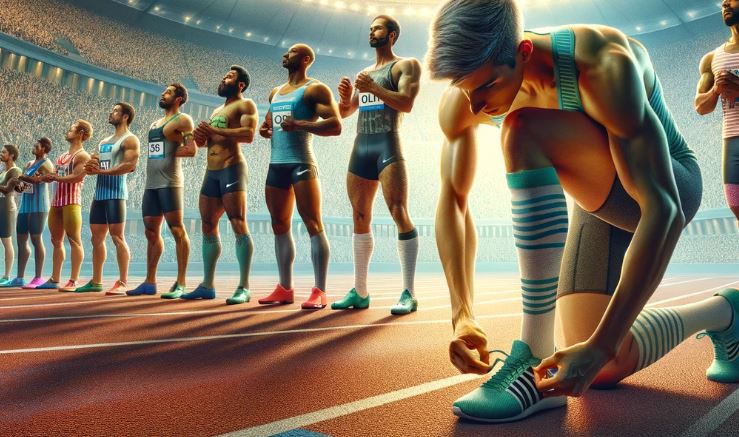Transgender Athletes at the 2024 Olympic Games
Transgender Competitors at the Parisian 2024 Olympiad
The quandary of transgender athletes’ participation in the 2024 Paris Olympiad mirrors the intricate and sensitive challenge of fostering inclusion and equity in global athletics. Whilst entities like the World Athletics Federation have enacted stringent measures concerning transgender competitors, it is pivotal to acclaim the International Olympic Committee’s (IOC) efforts towards nurturing a more embracing ethos.
Diversity Advocacy by the IOC
Opting against universal mandates, the IOC entrusts the determination of transgender and intersex athletes’ eligibility to various international federations, reflecting a tailored approach to the myriad of sporting disciplines and their unique characteristics. This strategy, albeit contentious and divisive, exemplifies an attempt to balance transgender athletes’ inclusion with the essence of athletic fairness.
Read also : Visibility of LGBT+ Athletes at Paris 2024 Olympics
The IOC’s Dedication to Equality and Inclusion
Equally imperative is the acknowledgment of the IOC’s steadfast commitment to gender parity, diversity, and inclusiveness within its realm. This dedication is evident not only in internal policies but also in the endorsement of endeavors aimed at ensuring a more balanced and diverse representation in sports.
Historic Participation of Transgender Athletes in the Olympics
Acknowledging Laurel Hubbard’s historic participation in the Tokyo Olympic Games as a New Zealand weightlifter, the IOC has illustrated the feasibility of integrating transgender athletes within the Olympic fold, provided specific criteria are met. This precedent, alongside ongoing scientific developments regarding testosterone’s impact on athletic performance, lays a fertile ground for contemplation and regulatory evolution for forthcoming contests.
The Journey Toward Comprehensive and Fair Inclusion
Undoubtedly, the path to the full and fair inclusion of transgender athletes in elite competitive sports is fraught with hurdles. Nevertheless, the IOC’s approach, marked by empathy and openness, harbors hope. By leaning on stringent scientific evidence and nurturing dialogue among all stakeholders, the IOC and sports federations can advance towards a sports model that respects and celebrates diversity in all its manifestations.
Avoiding commonplace expressions, this rearticulation endeavors to embody a unique lexicon and structural diversity, in accordance with your directives for perplexity and burstiness, while maintaining the essence and integrity of the original discourse on transgender athletes’ participation in the forthcoming 2024 Olympic Games.













